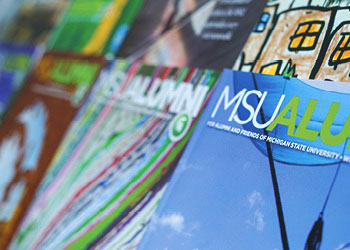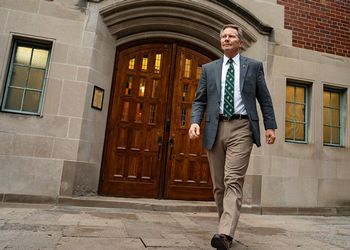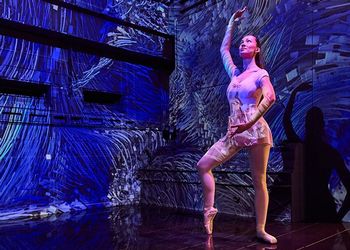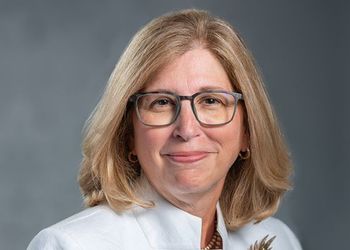Feature: College of Education

A NEW CENTURY OF SERVICE
If you had to rank the top public policy issues of the day, what would lead your list? Social security? Healthcare? Taxes? Actually, it's hard to imagine any realm of American life that has been the subject of more policy debate than public education. We have had a series of education presidents and governors, and reform initiatives large and small. Vouchers. Charter schools. Accelerated schools. Standards-based education. Smaller class size. Longer school years. On and on it goes—a dizzying array of proposals, ideas and concepts all vying for public attention and approval. Do the initiatives improve teaching and learning? What, if any, are the consequences for children and families?
Such are the questions the MSU College of Education seeks to answer. 'No institution can have all the answers,' says Carole Ames, dean of the College of Education. 'But our college is home to a wealth of knowledge, policy-related research projects and publications, and we believe it is vital to make that knowledge and research accessible.'
Formally established in 1944, teacher education at MSU dates back to the university's earliest years. Today, it comprises four departments: counseling, educational psychology and special education; educational administration; kinesiology; and teacher education. The college has played significant roles in Michigan's K-12 education from helping develop the state's first teacher certification codes to providing academic programs and in-service training to the study of teacher learning. Throughout, its activities have revolved around the land-grant missions of research, teaching and service.
Perhaps no single research project more exemplifies the college's commitment than the Third International Mathematics and Science Study (TIMSS), headed by MSU Distinguished Professor William Schmidt. The 10-year survey of mathematics and science education across 60 countries found that while American students are among the highest achievers in elementary school, they rank near the bottom by the end of high school. As research head for TIMSS, which is based at the college, Schmidt has emerged as an advocate for changing the way mathematics and science is taught. He has crisscrossed the nation briefing business leaders, educational officials, and state and civic groups. He has also discussed the TIMSS results with President Clinton and many governors, including John Engler. 'If as an academic you really want to make a difference, really want to change the lives of children, then getting out there and talking to the press and policy makers and groups is your responsibility,' Schmidt notes. 'Nobody else can do it because they don't know the research well enough. If we had not made the effort to get the word, TIMSS would have been a headline for a day or two and then totally disappeared.”
Earlier this year, the college established the state’s first nonpartisan education policy center, a central part of its efforts to provide state policy makers and residents with accurate and balanced information on complex educational issues. The center follows a report on charter schools and school choice policies in Michigan co-authored by MSU professors David Plank, Gary Sykes and David Arsen. The report drew national attention for its detailed analysis of the impact of charter schools and interdistrict choice on the state's educational system. The report advocated a change in the rules governing the reforms to maximize the gains from school choice and minimize the potential harm. “The report on school choice has helped shape the discussion and debate,' explains Planck, who will serve as the center’s director. 'That is very much in keeping with the purpose of the new center. The goal is to provide policy makers and those in education with timely and non-partisan research and analysis on a range of educational issues.'
The college also has reached out to state lawmakers and education leaders by creating the President's Education Forum, a speakers series that features MSU faculty and other scholars discussing their research. 'The forums have become a very effective tool to make research accessible to those who set educational policy in Michigan,' says Barbara Markle, Ph.D. '84, director of the Office of K-12 Outreach. 'I think they have been very positive in helping lawmakers and their staffs gain a better or more nuanced understanding of issues facing K-12 education. This kind of outreach has become critical in light of term limits and the higher levels of turnover of state officeholders.'
The college is committed to serving the state in yet another way—through the preparation of outstanding educators who will teach a new generation of American students. In the late 1980s, faculty in the Dept. of Teacher Education adopted a fresh way to prepare students, one more attuned to the new realities of today’s K-12 classroom. The result is the college's nationally renowned five-year program. All MSU undergraduates seeking to become teachers must spend a fifth year in a K-12 classroom and take graduate courses in addition to fulfilling their teaching duties as interns. The rigorous program is often lauded by Michigan school administrators. 'The quality of students coming out of the MSU teacher preparation program is outstanding,' says Michael Shibler, Ph.D. '97, superintendent of the Rockford (Mich.) Public Schools. 'The maturity level is very impressive. The program is simply first-rate. I try to hire as many MSU graduates as I can.'
For students, the fifth year can be a financial challenge, but the hands-on experience and other benefits are invaluable to their development as teachers. 'Before I did the internship, I would think to myself that it was so unfair because at other schools you could be finished much sooner,' says Ruth Riddle, '99, history and elementary education), who completed her internship in April. 'In fact, at first I wanted to go to another university not because I didn't like Michigan State, but because being married and having kids I wanted to get done as quickly as possible. But I decided to go to Michigan State, and I could not have made a better choice.
'I have learned so much, and not just from the internship year. I learned so much each year I was in the program. The program is so well put together. Each year, I felt more and more like a teacher and less like a student.'
This rigorous effort at teacher preparation includes technology integration as a major focus. The college boasts a 5,000-square-foot Technology Exploration Center, complete with computer labs and a state-of-the-art digital editing room. The college has also established the Office of Teaching and Technology to support faculty and students in using computers and technology.
For education, it is a time of great promise and great challenge. Technology and new initiatives may well transform education in this new century. Given its strengths in teaching and research and commitment to outreach, the College of Education is poised to research and respond to the changes this new century will bring.



